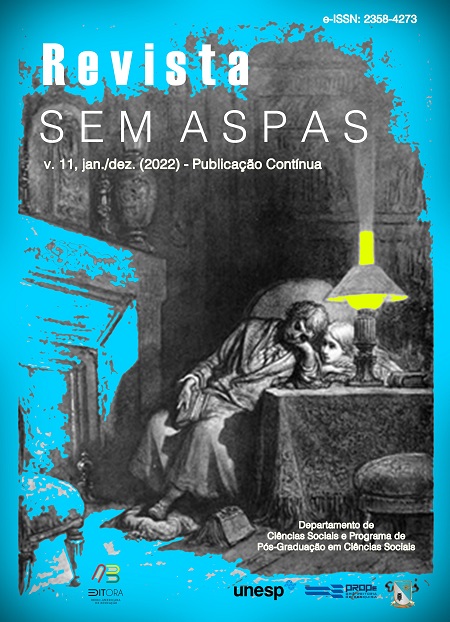Through Alice’s looking glass
Interest, experience and democracy in John Dewey’s pedagogical ideas
DOI:
https://doi.org/10.29373/sas.v11i00.16538Keywords:
Pedagogy, Interest, Experience, DemocracyAbstract
The purpose of this article is to produce a critical review of the selected texts from the work of the American philosopher and professor John Dewey (1859 - 1952). Dividing the text into themes, the analysis focuses on three main points: the inclusion of “interest” in the educational process, the objective experience as a guide for the act of educating and the structuring of an education for democracy. The author's argumentative structure is briefly reconstructed based on the bibliographic and critical review made by Robert B. Westbrook (2010) and on an interview by Cristiane Trindade (2019). The methodology used in this article is based on the interpretation of the author’s main ideas which is the base of our comprehension on how Dewey imagined and practiced his pedagogy. Finally, we aim to present two critical comments on the author's thought, as well as to touch on the actuality of his theoretical heritage, building a parallel between such ideas and the conflicts we are currently facing, especially regarding the defense of democracy.
Downloads
References
CARROLL, L. As Aventuras de Alice no País das Maravilhas & Através do Espelho. Trad. Maria Luiza X. de A. Borges. Rio de Janeiro: Zahar, 2000.
DEWEY, J. “Textos Selecionados”. In: WESTBROOK, R. B. et al. (org.). John Dewey. Recife: Massangana, 2010. p. 69-129.
TRINDADE, C. C. Pensadores na Educação: John Dewey e a educação para a democracia. Instituto Claro. 17 jan. 2019. 1 Vídeo (11min). Disponível em: https://www.youtube.com/watch?v=JSh5-bgZjdA&t=3s&ab_channel=InstitutoClaro. Acesso em: 22 jun. 2021.
WESTBROOK, R. B. “John Dewey” (1859-1952). In: WESTBROOK, R. B. et al. (org.). John Dewey. Recife: Massangana, 2010. p. 11-33.
Published
How to Cite
Issue
Section
License
Copyright (c) 2022 Revista Sem Aspas

This work is licensed under a Creative Commons Attribution-NonCommercial-NoDerivatives 4.0 International License.
Os manuscritos aceitos e publicados são de propriedade da Sem Aspas. Os artigos publicados e as referências citadas na revista Sem Aspas são de inteira responsabilidade de seus autores.








